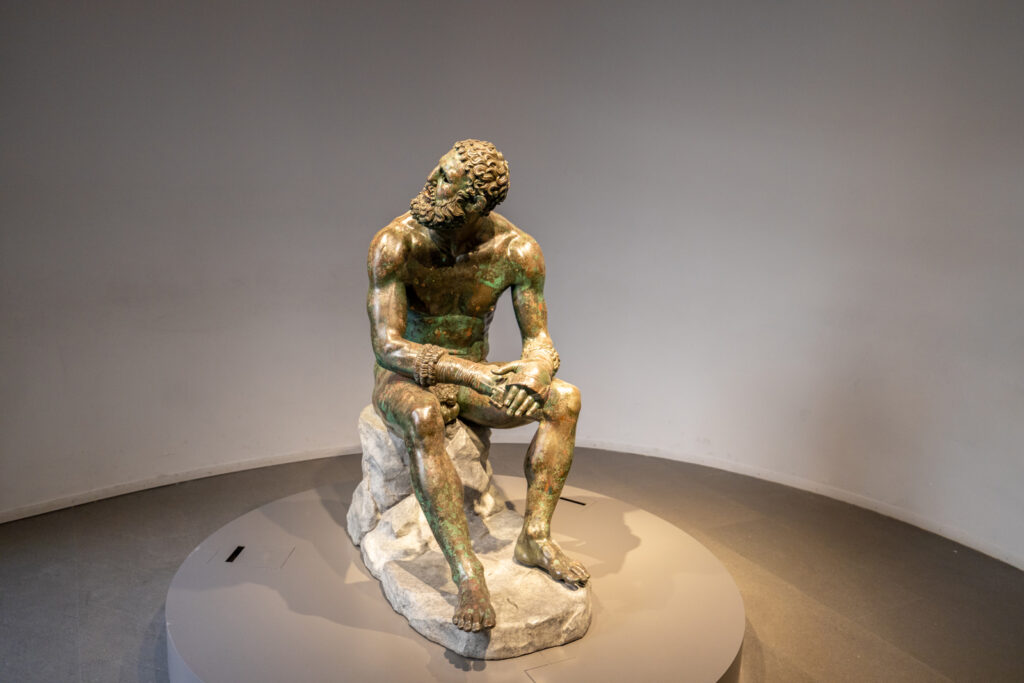The Greek minor focuses on establishing proficiency in reading and interpreting classical Greek literature. After completing an introductory course sequence (elementary classical Greek) that teaches students the vocabulary, morphology and syntax of classical Greek, students complete at least six credits in Greek language and literature at the 400-level for a total of 18 credits for the minor. In advanced courses in Greek language and literature, students gain analytical and interpretive skills by reading a wide range of classical Greek literature, including Greek drama, history, and philosophy, as well as the Greek New Testament. Students minoring in Greek will find their studies mesh well with a number of majors and graduate fields, including anthropology, archaeology, history, English, comparative literature, philosophy, and law.
Requirements: Students select 18 credits in Greek, with at least 6 credits at the 400-level.

What is Greek?
“Classical Greek” refers mainly to the Greek dialect spoken in Athens in the fifth and fourth centuries BCE (Attic Greek). As such, Classical Greek was the language of the first great democratic state; eventually, it became the standard dialect that was read and studied for more than a thousand years down through the era of the Roman and Byzantine empires. After the Classical period, the Greek language continued to evolve, forming a standard common dialect (koine Greek) that was used throughout the Hellenistic world of the eastern Mediterranean and beyond. This was the dialect used by the writers of the New Testament to make it accessible to the widest literate audience. The modern Greek language is its descendant, though greatly changed after more than a thousand years of linguistic development.
You might like this program if...
- You hope to analyze some of the world’s greatest classical texts in their original language.
- You want to pursue a career or engage in graduate studies in fields such as archaeology, theater, philosophy, literature, religious studies, law, and more.
- You are interested in gaining further insight into the societies.
